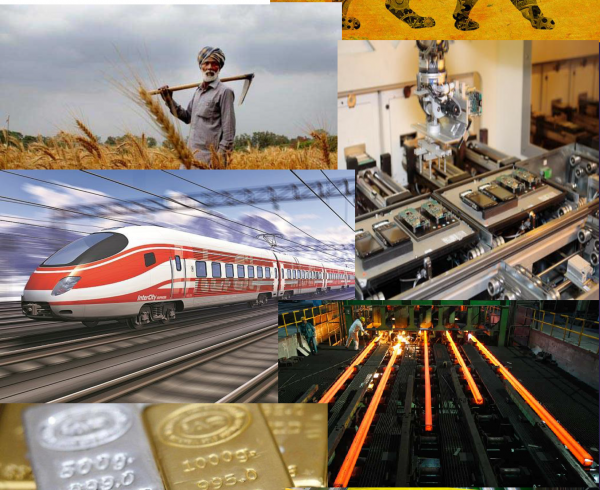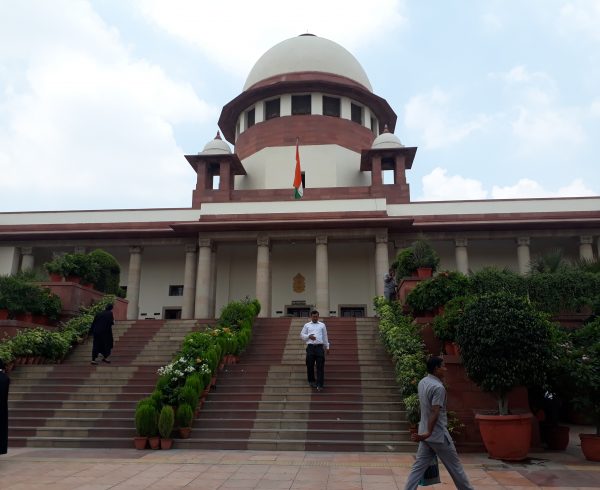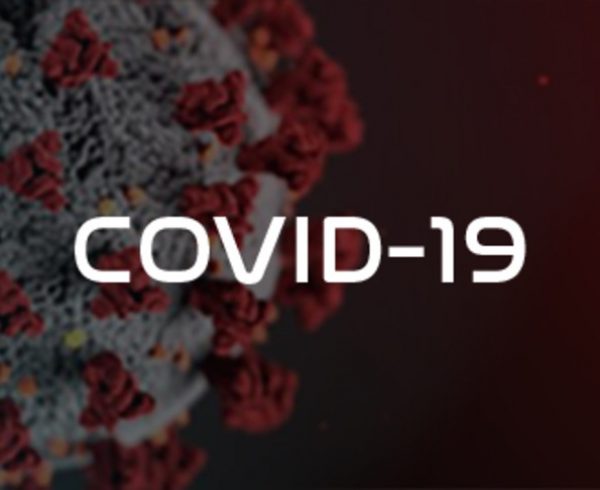On
30th January, 2020, the first case of COVID-19 (also known as
‘Coronavirus’) in India was reported from the state of Kerala. By the first week
of March, 2020 the reported number of positive cases were 40 and by the
auspicious festival of Holi the same jumped to 62 cases and unfortunately at
present over 6400 cases have been reported. While day by day the numbers of
cases are continuing to increase, India has a relatively lower number of active
cases in comparison to various other countries. While observing the rapidly
increasing number of cases and deaths, which spread like wildfire across the
European Countries and the United States of America and considering the
population of our Country and the devastation that COVID- 19 could cause, it was
time for the Government to take strict action and ensure that preventive
measures be implemented.
Although, in view
of the preliminary information about the causes for spread of the disease, the
availability of Sanitizers etc. in Court Premises was ensured by the respective
Courts, from the first working day of March, 2020, an official announcement was
made vide Office Memorandum dated 05.03.2020 by the Ministry of Health and
Family Welfare issuing an advisory on ‘Mass Gatherings etc.’ and the respective
states to take action accordingly. It was however, not clarified what falls
under the category of ‘Mass Gatherings etc.’ leading to wide circulation of
various forged and doctored notifications across social media which could not be
prevented. However, official clarifications were thereafter issued by the
Ministry of Health and Family Welfare.
On 11.03.2020, the
Disaster Management Division of Ministry of Home Affairs, Government Of India
[GOI] passed an order exercising powers conferred under Section 69 of the
Disaster Management Act, 2005 and delegated powers under Clauses (i) and (ii) of
Section 10(2) of the Disaster Management Act, 2005 to the Secretary of Ministry
of Health and Family Welfare, GOI for containment of the spread of COVID-19.
ACTION TAKEN TO
DECONGEST COURTS
It is pertinent to
mention at this stage that all Courts across India were fully functional
including various Tribunals, although various self-prevention measures were
undertaken by most of the lawyers. On the very same day i.e. 11.03.2020, Section
2 of a British Era law, The Epidemic Diseases Act, 1897, which was first enacted
to tackle bubonic plague in Mumbai (Bombay), emphasizing on implementation of
containment measures to control the spread of the disease was invoked. The scope
of the act is as short as the whole act containing only 4 sections bereft of
details. The act had been previously used in India for combating diseases like
the Swine Flu, Cholera, Malaria and Dengue in the past 10-12 years. The Act
empowers the Central as well as the State Governments to take measures for
containment of the disease and to promulgate interim measures including
inspection of suspected and vulnerable patients, inspection of ships and vessels
at the ports of the territories by public notice. Under Section 3 of the Act,
any person disobeying any regulation or order made under this Act shall be
deemed to have committed an offence punishable under Section 188 of the Indian
Penal Code. While Section 4 of the Act further indemnifies the authorities or
any other person from any suit or legal proceedings in view of ‘anything’ done
in good faith under the Act. The term ‘good faith’ has not been defined under
the Act and hence it will soon be up for interpretation before various courts of
Law owing to the economic slowdown during this period and non-compliance /
non-performance of various contractual obligations. The same however is not
relevant for the purposes of the present article and is thus not being dwelt
into any deeper.
In view of the
above, the Legal Fraternity took quick and decisive action in as much as apart
from initially ensuring the quick dispensing of Sanitizers in the Court premises
numerous advisories were issued from time to time to prevent the spread of the
disease in the court premises. This article primarily deals with the various
actions taken by Courts to ensure safety its citizens as well as to protect
their fundamental rights during this unprecedented lockdown.
The Hon’ble
Supreme Court of India taking cognizance of the COVID-19 breakout deemed it
imperative that mass congregation should be avoided and issued directions on
13.03.2020 that it’s functioning would be restricted to urgent matters only and
prohibiting the entry of legal interns and only allowing one lawyer along with
one litigant to be gathered in the Court premises. The urgent matters were
directed to be mentioned before the Mentioning officer and cooperation with
court staff was requested. The aforesaid directions passed by the Hon’ble Apex
Court led to various courts following suit and limiting its functioning to
safeguard the public health at large and it was further resolved that only
matters of urgent nature would be taken up by the Courts. Initially there was no
notification with regards to what was to be considered urgent in view of the
present scenario however over time the same was also clarified.
In fact, in
M/s. Keshavlal & Company versus The State of Maharashtra and Ors.,
filed before the Hon’ble High Court of Bombay, Justice K.K. Tated vide order
dated 26.03.2020, imposed cost of Rs. 25,000/- on the Petitioner for getting a
matter listed, seeking stay on an order passed by the Drugs Department, State of
Maharashtra in view of stay passed previously in the connected matters which was
deemed not of an ‘urgent nature’ by the Hon’ble Court.
In view of the
directions passed by the various Courts, all day to day matters listed in
regular course on various dates already provided came to a standstill up to
31.03.2020 and a review meeting was required to be held in respective courts and
bar associations across the nation for further required action.
On 23.03.2020, the
Hon’ble Supreme Court of India was pleased to take suo-moto cognizance of the
difficulty faced by the litigants and lawyers in complying with the timelines as
per law and therefore passed orders extending the period of limitation in all
matters irrespective of the limitation prescribed under law. The same was also
followed by all the subordinate Courts and Tribunals.
By way of a few
examples, further in the wake of the
Nationwide lockdown for 21 days from
25.03.2020,the bench comprising of Hon’ble Chief Justice of the High Court of
Delhi, Hon’ble Justice Sidharth Mridul, Hon’ble Justice Talwant Singh taking
suo-moto cognizance on 25.03.2020 passed an order directing that all matters
before the High Court as well as the subordinate courts, wherein
interim orders issued were subsisting as on 16.03.2020 and/or expired or
expiring stood extended till 15.05.2020 or until further orders except where any
orders to the contrary have been passed by the Hon’ble Supreme Court of India
during the intervention period provided that if any party suffers hardship of
extreme nature, it would be at liberty to seek appropriate relief as advised.
Further vide
circular dated 25.03.2020; the functioning of Delhi High Court was suspended
till 15.04.2020 and fresh dates for the matters fixed was announced. Similarly,
the Hon’ble High Court of Bombay on 26.03.2020 issued directions for continuance
of all interim orders to remain in force till 30.04.2020 which also applied to
the subordinate courts under its jurisdiction. It was further ordered by the
Hon’ble Court that any orders or decree for eviction, dispossession, demolition
already passed by any Court/ Tribunal/Authority shall also remain in abeyance
till 30.04.2020.
In fact, the
Insolvency and Bankruptcy Board of India resolved vide notification dated
29.03.2020 that the 21 days period of
lockdown would not be counted in the time lines contained in these regulations
for any purpose of the any activity that could not be completed due to the
lockdown. The National Company Appeal Law Appellate Tribunal passed a suo-moto
order dated 30.03.2020 wherein the 21 day lockdown period was excluded for the
purpose of counting the period for ‘Resolution Process’ under Section 12 of the
IBC, 2016 in all cases where CIRP has been initiated. It was further ordered
that all interim orders/stays passed by the Appellate Tribunal stand extended
till the next date of hearing.
That on
06.04.2020, Guidelines were formulated by the Hon’ble Supreme Court of India, to
facilitate containment of COVID-19 while ensuring that the course of Justice is
not disrupted and in exercise of its power under Article 142 of the Constitution
of India, have passed the following directions:
1.
Measures to be taken by the
Hon’ble Apex Court as well as the High Courts to reduce physical presence of all
stakeholders within court premises to maintain social distancing.
2.
The Hon’ble Apex Court and the
High Courts are authorized to adopt measures required to ensure the robust
functioning of judicial system through video conferencing technologies.
3.
The High Courts are authorized
to determine the modalities which are suitable to the temporary transition to
the use of the video conferencing technologies as per the peculiarities of
judicial system in every state.
4.
Concerned Court halls to
maintain a helpline to ensure that any complaint in regard to the quality or
audibility of feed shall be communicated during the proceeding or immediately
after its conclusion failing which no grievance shall be entertained.
5.
District Courts in each state
are directed to adopt mode of video conferencing prescribed by the concerned
High Court.
6.
The Court should duly notify
and duly make available the facilities for video conferencing for such litigants
who do not have means or access to the same. Even Amicus Curiae can be appointed
to make video conferencing available to such an advocate.
7.
Until appropriate rules are
framed by the respective High Courts, video conferencing shall be mainly
employed for hearing arguments whether at the trial stage or at the appellate
stage. In no case any evidence be recorded without the mutual consent of both
the parties by video conferencing. Incase evidence being is recorded in Court
premises appropriate distance be maintained between those present.
8.
The presiding officer is
empowered to restrict entry of persons into the Court room or the points from
which the arguments are addressed by the advocates. No prohibition on entry of
any party unless they are suffering from an infectious illness. However the
number of litigants can be restricted by the presiding officer.
Whereas, the
Hon’ble High Court of Telangana resolved in a video conference meeting on
07.04.2020 it has been informed vide press release dated 07.04.2020 that the
Courts will continue to function in the summer break which stands cancels
throughout May, 2020 till 05.06.2020. Only matters related to Bail, stay
applications and PILs will be taken up till the review of the situation on
25.04.2020. Similarly, the Hon’ble High Court of Delhi, has also resolved to
make up for the loss of court hours by passing directions for full functioning
of the Hon’ble High Court and the subordinate courts during the entire month of
June, 2020 which would otherwise be court vacations.
EFFORTS TO PROTECT
INTERESTS OF EFFECTED PERSONS
It is imperative
to now understand the economic drawbacks of a situation such as the present,
especially for those who are at a financial disadvantage than others and for the
non-essential sectors which have been stopped in their entirety due to the
lockdown. In a nutshell the lockdown meant no place of work, no income, no job
security, no free movement, leading to separation from family or loved ones,
lack of food, shelter or basic amenities for many and above all the threat of
contracting the disease.
Thus, apart from
protecting the interests of the citizens at large, the legal fraternity has also
endeavoured to protect its own. The Kerala High Court Advocates Association
(KHCAA) has introduced the KHCAA Junior Lawyer’s Welfare Scheme 2020 to provide
financial assistance to the Junior Lawyers not above the age of 35 years having
practiced for less than 7 years with a maximum of Rs. 7,500/- as per the mode
and manner mentioned in the scheme. The Karnataka State Bar Council also
established the Karnataka State Bar Council – COVID-19 Advocates Relief Fund to
aid the needy advocates across the state. The Bombay Bar Association (BBA) has
also resolved to provide financial assistance to the members with the help of
the Bombay Bar Association Trust. Similar initiatives have been taken by Bar
Council of Delhi as well as the Delhi High Court Bar Association. Infact, the
Secretary of the Supreme Court Bar Association (SCBA) had circulated a Whatsapp
message wherein lawyers who need financial assistance may reach out to him.
While Sanitizers
and N-95 masks were being stocked by the public, advisories were issued by the
Government for disinfecting the Public Transport(s) including private school
buses. Public awareness measures were undertaken with effect from the second
week of March, 2020, prohibition of bio-metric attendance etc. Social Distancing
emerged as the one and only effective solution to prevent the spread of the
outbreak. Therefore, various restrictions were imposed by the State Governments
to avoid public gathering with a limit of 50 persons (in case of a wedding or
funeral). The NCT of Delhi, State of Maharashtra, Punjab, Kerala, Kolkata were
amongst the first states to impose Regulations in view of the powers conferred
upon them. By 12.03.2020, NCT of Delhi amidst the on-going Anti-CAA protests and
just recovering from the recent riots, taking the lead announced that with
immediate effect closing down of cinema halls, Schools, Colleges, Tuition
Centers, Coaching Centers till 31.03.2020 with the only exception to conduct
final term examination and board exams. With the positive cases spreading, it
was deemed necessary for containment of the situation by imposing a complete
lockdown in the NCT of Delhi, the State of Maharashtra, the State of Punjab
amongst others on 23.03.2020 till 31.03.2020 and even sealing the borders with
the neighbouring States. However, as already mentioned above, a national
lockdown was announced by the Hon’ble Prime Minister on 24.03.2020 thereby a ban
on people from leaving their homes, closure of all commercial and private
establishments barring the essential services, closure of all religious
institutions, closing down of malls, restaurants, prohibition of public
gathering of any form (20 persons allowance for funerals and congregations) and
suspension of non-essential public and private transport.
There was thus an
obvious snowball effect to such a country wide lockdown and various obstacles
were bound to come in the way of fighting this pandemic. One such difficulty
faced was the inter-state migration of labourers due to the complete stoppage of
work in majority of the sectors of the country. The same became a red alert for
the community spread of the disease. A
Public Interest Litigation [PIL] was filed before the Hon’ble Supreme Court of
India titled Alakh Alok Srivastava versus
Union of India, calling for immediate action to safeguard the rights of
migrant workers and avoid the situation where they are deprived basic essentials
like food, shelter, water and medical aid. It was highlighted by the Solicitor
General of India that the Government has taken measures to ensure the safety and
welfare of the migrant workers and various relief packages and schemes have been
formulated to ensure the lower strata of the society do not suffer. The Hon’ble
Supreme Court of India being satisfied with the status report filed by the Union
of India attributed the panic situation being triggered due to some
fake/misleading news and social media.
The Hon’ble
Supreme Court of India vide order dated 31.03.2020 considering the submissions
made by both the sides, held that Section 54 of the Disaster Management Act,
2005, provides for punishment of a person who makes or circulates false alarm or
warning as to disaster or its severity or magnitude, leading to panic and such
person shall be punished with imprisonment which may extend to one year or with
fine. The Hon’ble Supreme Court of India also urged media to maintain strong
sense of responsibility and ensure that unverified news capable of causing panic
is not disseminated. It was further emphasized, that anxiety and fear of the
migrants should be understood by the Police and local authorities and they
should deal with migrants in a humane manner and treat them with kindness.
Similarly, in the
High Court of Kerala, a Petition is filed by Adv. Parvathy Sanjay, the Amicus
Curiae appointed by the Hon’ble Court
on 31.03.2020,
wherein the apprehension of
the welfare migrant workers of Ernakulam District and Kottayam District
has been raised, the Hon’ble Court taking cognizance of the same, has directed
the State of Kerala to file a detailed statement with respect to the actions
taken to provide food and shelter for the migrants not only confining to the
districts but all over the State of Kerala.
While the
directions of the Hon’ble Supreme Court of India already enshrined upon the
roles and responsibilities of Media, the Jamait Ulama- I- Hind an organization
of Islamic Scholars has moved the Hon’ble Supreme Court of India seeking strict
action against the Media for communalization of the Tablighi Jamaat meeting in
Delhi’s Nizaamuddin Markaz. It has been pleaded by the Petitioners that the
aforesaid case has been portrayed by media as some sort of religion based
conspiracy to spread the COVID-19 virus in India which has resulted in flaring
and fanning of communal sentiments at such a sensitive time posing serious
threats to life and liberty of a particular religion across India. The
Petitioners have prayed for directions to the Ministry of Broadcasting and
Information to identify and take strict actions against those sections of Media
for communalizing the issue and to adhere to the directions passed the Hon’ble
Supreme Court of India dated 31.03.2020 in letter and spirit.
For the sake of
convenience of the public and in order to avoid panic and deprive the citizens
of basic amenities, Essential Services (goods and services) were exempted from
the lockdown in view of the Essential Commodities Act, 1955. The Guidelines with
regards to measures taken by the Government including the list of essential
services exempted was published on 24.03.2020 vide order no. 40-3/2020-D. These
included ration shops, dealing with food, groceries, fruits, vegetables, poultry
and meat, animal fodder, banks, Police, home guard, Civil Defence, Electronic
media and print, Telecommunication, Broadcasting and IT services, Petroleum and
LPG, Electricity, water, private security services, Capital and Debt Market
services as notified by SEBI, Fire, Law and Order emergency services, Industrial
establishments related to manufacturing of essential commodities.
While the sudden
lockdown announced on 24.03.2020 created a situation wherein the public was
compelled to practice nothing but social distancing led to the markets being
crowded with people recklessly stocking up the essentials to equip themselves
for the 21 day lockdown. The respective administrative bodies resorted to strict
action against those violating the basic norms of social distancing and
self-quarantine. The aforesaid situation not only, endangered the public at
large but also led to shortage of groceries, lack of man power and the smooth
functioning of affairs. It further led the public to seek assistance of the
judiciary in many instances like permission for movement during the lockdown,
shortages of protective medical gear, protection against circulation of fake
news regarding the virus, rights of the migrants suffering due to the lockdown
amongst others.
Troubles faced due
to the National Lockdown affected not
only the humans but other living
beings/animals and the courts have come to the aid of them as well in a
remarkable judgment passed by the
Hon’ble High Court of Kerala, on
06.04.2020 in a Writ Petition filed by the Petitioner aggrieved by denial of
online pass to buy biscuits for his pet Cat during the lockdown period, Justice
A.K. Jayasankaran Nambair and Justice Shaji P. Chaly, it was rightly held that
‘animal feed and fodder’ is included in the list of
‘essential items’ in respect of which the movement is permitted and in
facts of the case, directed the Respondents to permit the Petitioner to travel
to the Pet hospital to procure food for his pet. The balanced compassion towards
the rights of animals is reflected in this judgement.
Unfortunately,
even the Healthcare Sector has been facing difficulties while dealing directly
with the patients, and the same was also brought up before the Hon’ble High
Court of Andhra Pradesh In Dr. Koilagnadla
Niranjan versus UOI and Ors., wherein
directions were sought against the competent authorities of the Central and the
State Government to supply precautionary equipment along the lines of N-95
masks, sterile medical gloves, starch apparels to all Doctors, Nurses, Ward Boys
and Staff concerned within 24 hours. The Hon’ble Hon’ble High Court made
observations that the State Government should ensure availability of the
necessary equipment and that the accessories are provided to the Doctors, Nurses
and Paramedical Staff as they are in frontline of this battle against the virus.
In
Jerryl Banait versus UOI & Anr,, a
bench comprising of Justice Ashok Bhushan and Justice S. Ravindra Bhat, the
Hon’ble Supreme Court vide order dated 08.04.2020, has directed the Ministry of
Health and Family Welfare to ensure availability of appropriate PPE (Personal
Protective Equipment) including
sterile medical gloves, starch apparels, medical masks, goggles, face shield,
respirators, shoe covers, head covers and coveralls to all
health workers including Doctors, Nurses, Ward Boys and other medical and
paramedical professionals actively attending to and treating the patients in
Tier 2 and Tier 3 cities. The Satte Governments were also directed to ensure
necessary action is taken against the persons who obstruct and commit any
offence in respect to performance of duties by Doctors, Medical Staff and other
Government Officials deputed to contain the pandemic.
The Hon’ble
Supreme Court of India In Shahshank Deo
Sudhi versus UOI, on 08.04.2020 passed a remarkable order directing the
tests relating to COVID -19 in Government Laboratories and Private Laboratories
be made free of cost and directions in this regard should be issued by the UOI
immediately and it was also held that tests should be carried out only in NABL
accredited labs or any other agency approved by WHO or ICMR.
Apart from the
above, the various High Courts have also protected the interests of various
inmates and under trials in various prisons across the country and to avoid
overcrowding have identified certain categories of persons who would be entitled
to parole and/or furlough in view of the COVID-19 outbreak and to decongest the
prisons in view of the social distancing protocols applicable as on date.
There are many
more similar efforts taken by various High Courts and the Hon’ble Supreme Court
of India on almost a daily basis to ensure that by way of judicial interference
the basic rights of the citizens as well as living beings are protected. We are
only in the 17th day of the lockdown and there is no clarity as to
whether the lockdown would come to an end after 21 days, however, the Judiciary
being one of the branches of the Indian Government continues to protect and
uphold the fundamental rights of citizens as enshrined in the Constitution of
India.
In conclusion, a
great challenge lies ahead of all of us and in times like these utmost empathy
must be shown by every individual as the situation has deeply and equally
impacted all sections of the society, and full cooperation should be extended by
the Citizens as well as the Administration in order to defeat this disease and
gracefully emerge from the Pandemic.
The Judiciary has
set a great example for young lawyers such as us to ensure that we should do
whatever we can in our power to assist and enable the society to tackle the day
to day hardships it may face due to the drastic but necessary measure of this
complete lockdown of the country.
Author:
Shivangi Dham
Associate at Vedya
Partners
ABOUT THE AUTHOR
 |
Shivangi Dham Shivangi is an associate at Vedya Partners, she is a Civil Litigation Lawyer, who regularly appears before various forums in Delhi ranging from the Hon’ble Supreme Court of India, the Hon’ble High Court of Delhi, Sessions and District Courts, TDSAT and NCDRC,, she is highly skilled in Drafting, Legal Advice, Legal Assistance and Legal Research. |






Leave a Comment